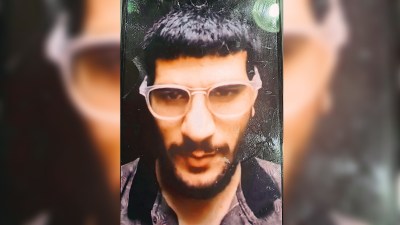Lords of Music
Independent filmmaker Rudradeep Bhattarcharjees The Human Factor showcases the Lords,a Parsi family that has been playing and arranging Hindi film music for generations
When I was a child,I hated Hindi movies. I would read comic books throughout the three hours. Destiny can be so funny sometimes, says Bujji Lord,a celebrated percussionist in Bollywood of the 70s. Bujji and his brother Kersi (who was a well-known music arranger of the time) have been featured in Rudradeep Bhattacharjees documentary,The Human Factor. The film focuses on the Lord family,who have contributed to Hindi film music for generations,starting with Cawas Lord,a drummer with Chic Chocolate (a famous jazz musician of the 50s) and later a musician for Bollywood,and his two sons Bujji and Kersi. The 76-minute film is packed with nostalgia on the music magic of Hindi cinema and anecdotes about celebrated music directors. After a screening in the capital on July 4,it will be screened in Mumbai today. The film was also shown at the New York Film Festival in May,and the International Documentary Short Film Festival in Kerala in June this year.
The idea for the film came to Bhattacharjee,a 34-year-old filmmaker based in Mumbai,after reading New-Zealand based ethnomusicologist Gregory Booths book Behind the Curtain: Making Music in Mumbais Film Studios. The book is quite academic,while I wanted a personal account of what it meant to be a part of the music business back then, says Bhattacharjee. The film graphs the influence of jazz in Hindi music in the 50s,brought on by many musicians of the time (including Cawas Lord),to the Latin influence in the 60s and goes all the way up to RD Burmans retro-pop melodies.
Unlike what we read of the music of the time,this film talks more about the challenges that the orchestra players and music arrangers had to face,from battling forgotten credits to being overshadowed by playback singers. Song snippets such as Shola jo bhadke,O gore gore,and Aye dil hai mushkil,in the film,reveal the brothers contribution,with innovative instruments and percussion beats.
Each era of music is detailed by Bujji and Kersi,explaining the experiences of arranging and making music. Back then there was only one mic in the middle of the room. While recording,if there was a violin solo,we had to get the violinist to pull his bench all the way to the front. It was all about mastering that one take, says Kersi. He also shares stories about OP Nayyar and SD Burman. While Nayyar was a one-take music director,who preferred the freshness of the first take,SD Burman was a perfectionist,willing to take as many to get the desired result. The music arranger worked the hardest,getting all of this to come together. Which is why,by the 70s,when each instrument starting recording separately,it was a culture shock for everyone, he says.
While Kersi moved with times,and used the patchwork style of music mixing,Bujji preferred playing the drums live. The brothers differed in their approach to music,but through interviews with family members,one can tell music runs in their blood. Rare instruments such as accordions,mouth-organs and ones used to make Foley sounds such as horse-carriage rides and glass-tinklings,are still preserved by the family in their home.
The Human Factor is a seamless narrative,interspersing candid interviews with the two brothers and their families,black-and-white snippets of many songs that the Lord family have contributed to,and perspectives by personalities such as Naresh Fernandes (author,Taj Mahal Foxtrot: The Story of Bombays Jazz Age),Enoch Daniels (music director) and Booth himself. Its important to conceptualise the background action of the music business,and get rid of the myths we have about how it works, says Bhattarcharjee,on including these contemporary voices.
After watching the film,there is new found respect for these unsung heroes,who make the entire listening experience so effortless. One almost echoes a thought that Booth mentions in the film. Talking about the importance of background musicians and arrangers,he says,One can almost make an argument that RD Burman was running a pop band.







